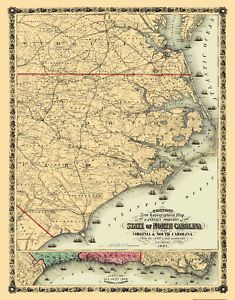 Readers of this week’s North Carolina Baptists’ Biblical Recorder are treated to an essay entitled, “Who Will Stand in the Gap”?, which in part declares:
Readers of this week’s North Carolina Baptists’ Biblical Recorder are treated to an essay entitled, “Who Will Stand in the Gap”?, which in part declares:
In a time of abounding iniquity, God once said to his ancient people, after preferring sundry heavy charges against them, “As they gather silver into the midst of the furnace to blow the fire upon it to melt it, will I gather you in mine anger, and blow upon you in the fire of my wrath.”–He then says, “And I sought for a man among them that should stand in the gap before me for the land that I should not destroy it, but I found none; therefore have I poured out mine indignation upon them.”
The figure is that of a besieged city, in whose walls a breach is already made. The enemy are about to pour in. Where is the man who will rush into the gap, and strong in Almighty strength, keep the invading house at bay? God is represented as in infinite compassion, seeking such a one, but finding none.
We too have drawn down the wrath of Heaven by our sins. As well remarked by a writer in the Central Presbyterian. “We were participants in the sins of the former United States. How long and black the catalogue recorded against us, running back for ages. What mountains of guilt have we been heaping up by our Sabbath-breaking, our profanities, our intemperance, our haste to be rich, our self-exaltation and disregard of God. This last is indeed the chief root of the difficulty. The fear of the Lord seemed to a great extent, to have forsaken the land. Since our separation too, after God had appeared for us in a manner little short of miraculous, instead of being humble, and penitent, and grateful, and obedient, how have we rushed into all manner of wickedness.
But let us not despair. Our Heavenly Father is no doubt bending over us now with looks of love, in wrath remembering mercy, seeking for some to stand in the gap before him for the land, that he may not destroy it. And we trust he will not seek in vain. At such a time as this, there must be, there will be prayer. Many an anxious mother is pouring out her supplications with strong crying and tears, by day and by night; and many others, it is believed, are besieging the throne of grace, that we may be saved from our sins and from our enemies.
Unable and unwilling to countenance African slavery as a sin, Southerners search for other ways their nation may have offended God. While many Baptists and other Southern Christians frequently settle on “Sabbath breaking” as a primary sin of the Confederacy, the reality is that Baptists prior to the war were the foremost advocates of maintaining the traditional government stance of not recognizing Sunday as a special day, to the point of supporting the continuance of Sunday mail service, a practice with roots in the Revolutionary era.
Now, having strayed far from their heritage of church state separation, many Southern Baptists of the war years embrace church state union (short of government funds paying the salaries of Christian army chaplains), turning to government laws and mandates to ensure that citizens live Godly lives.
Source: “Who Will Stand in the Gap?”, Biblical Recorder, June 25, 1862 (link)


